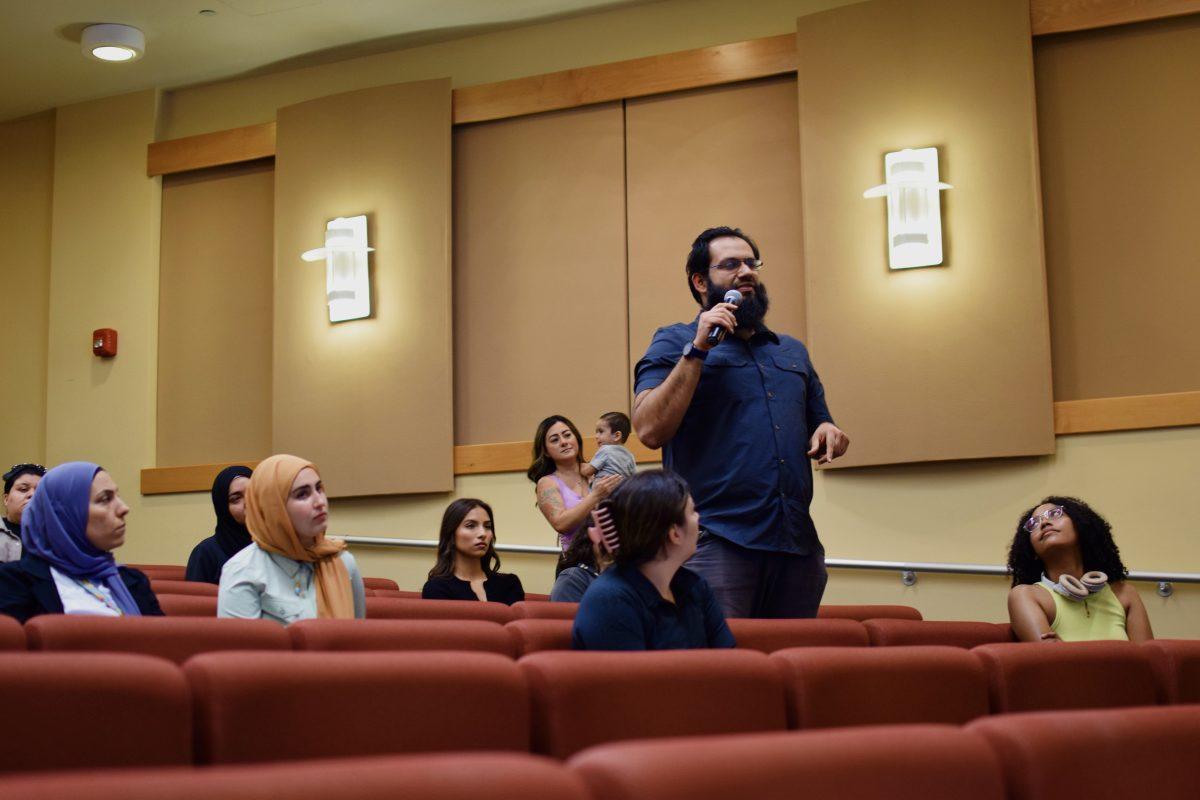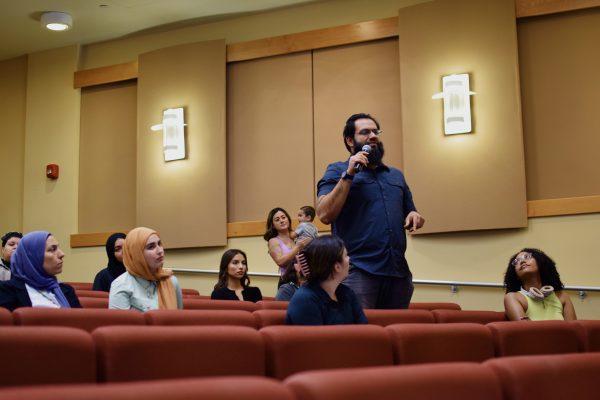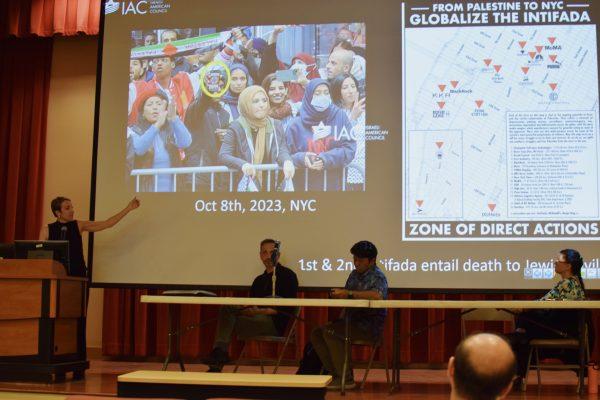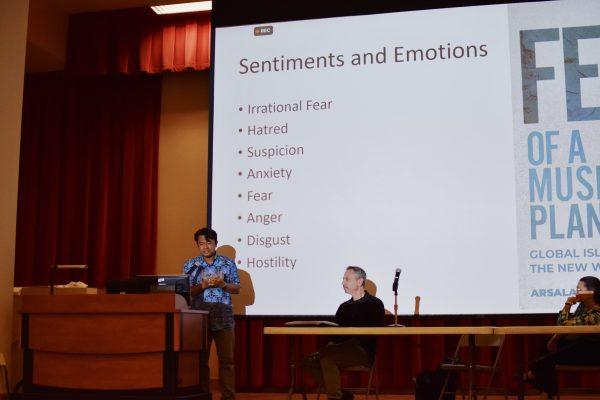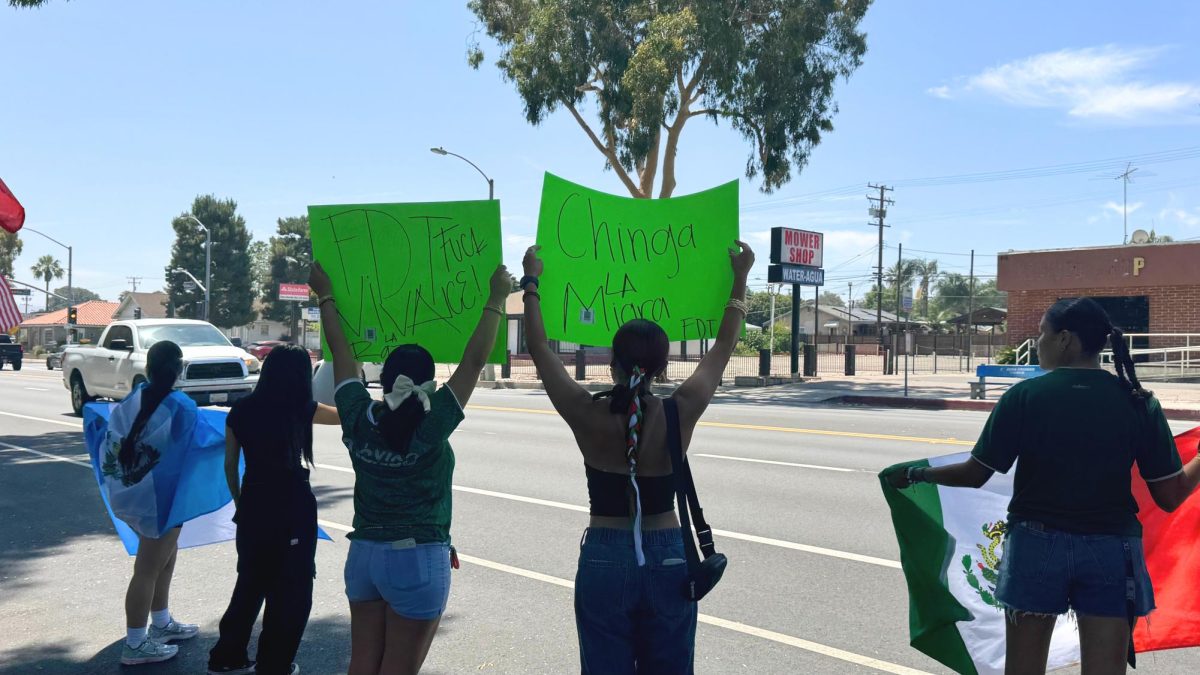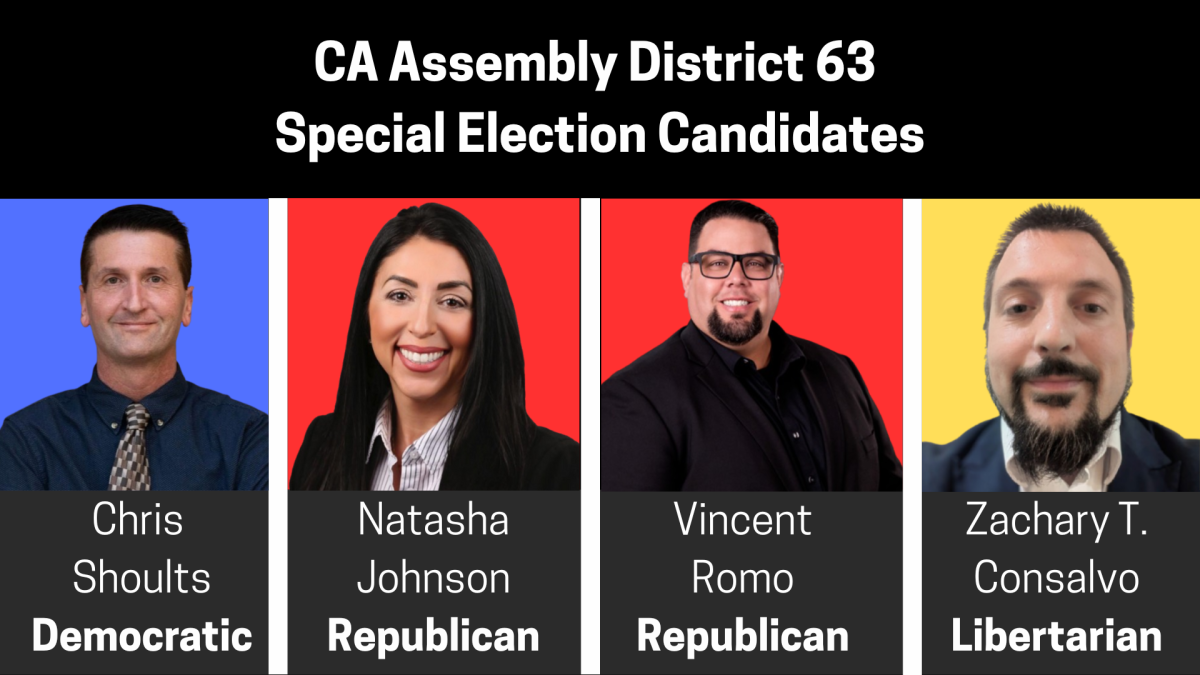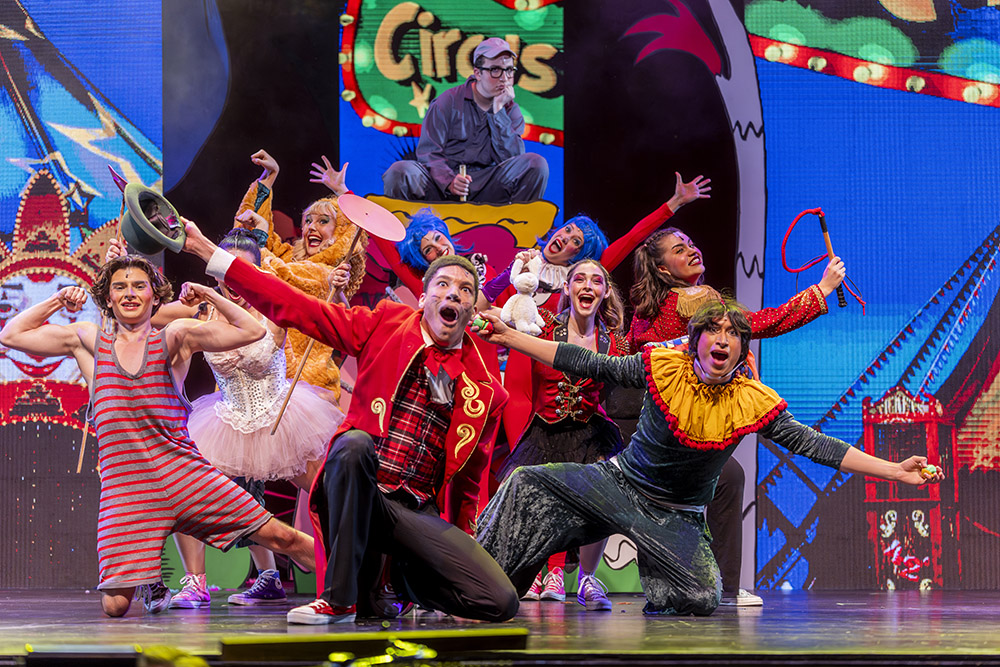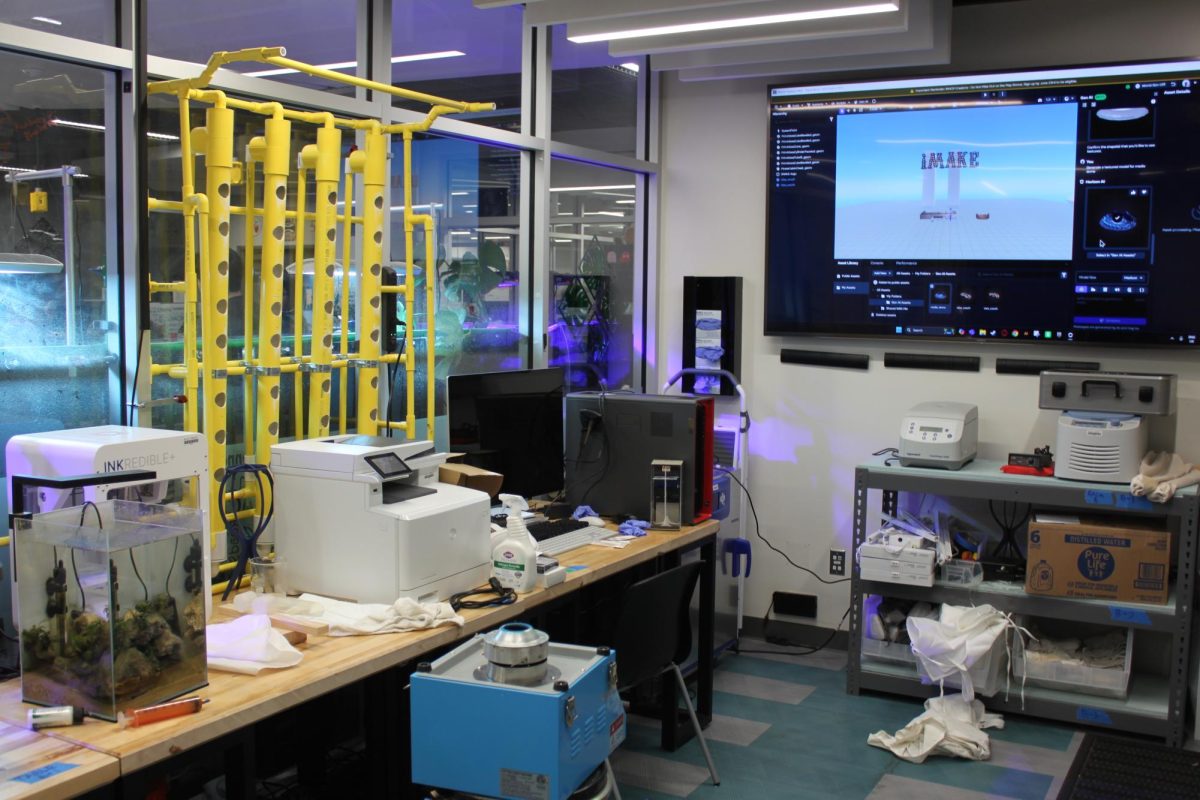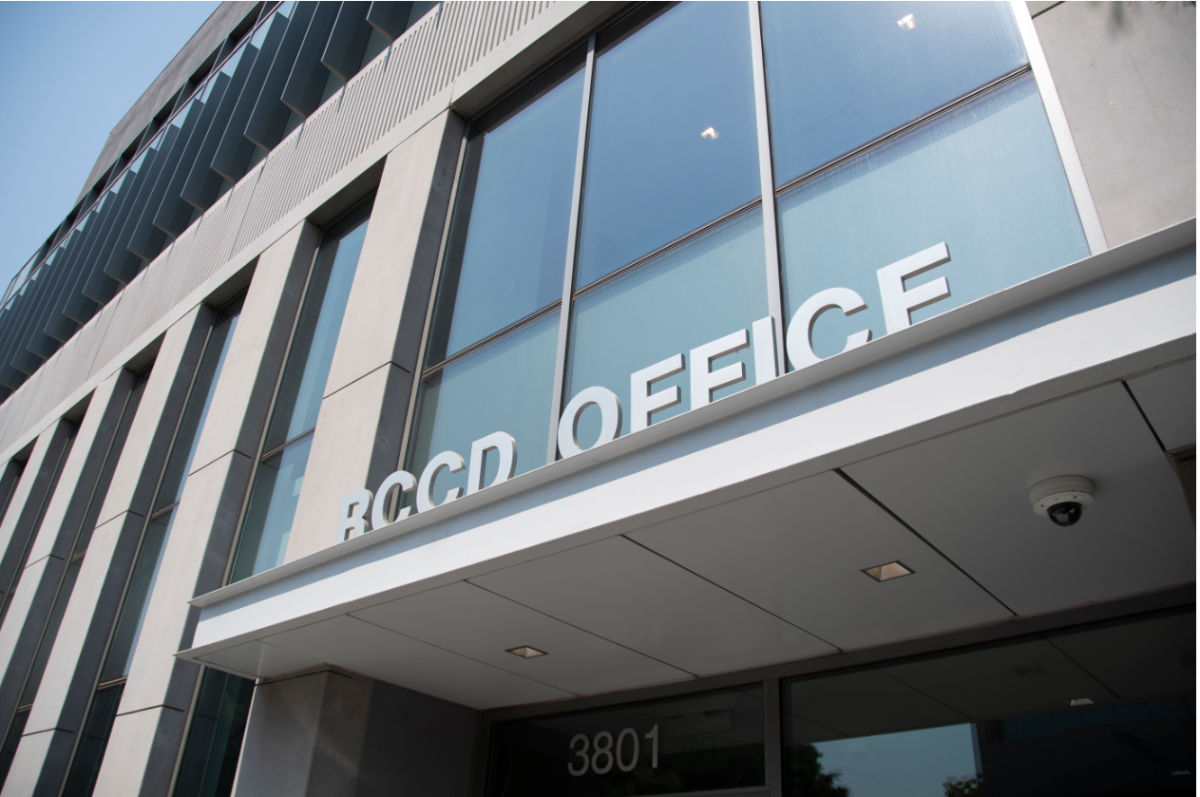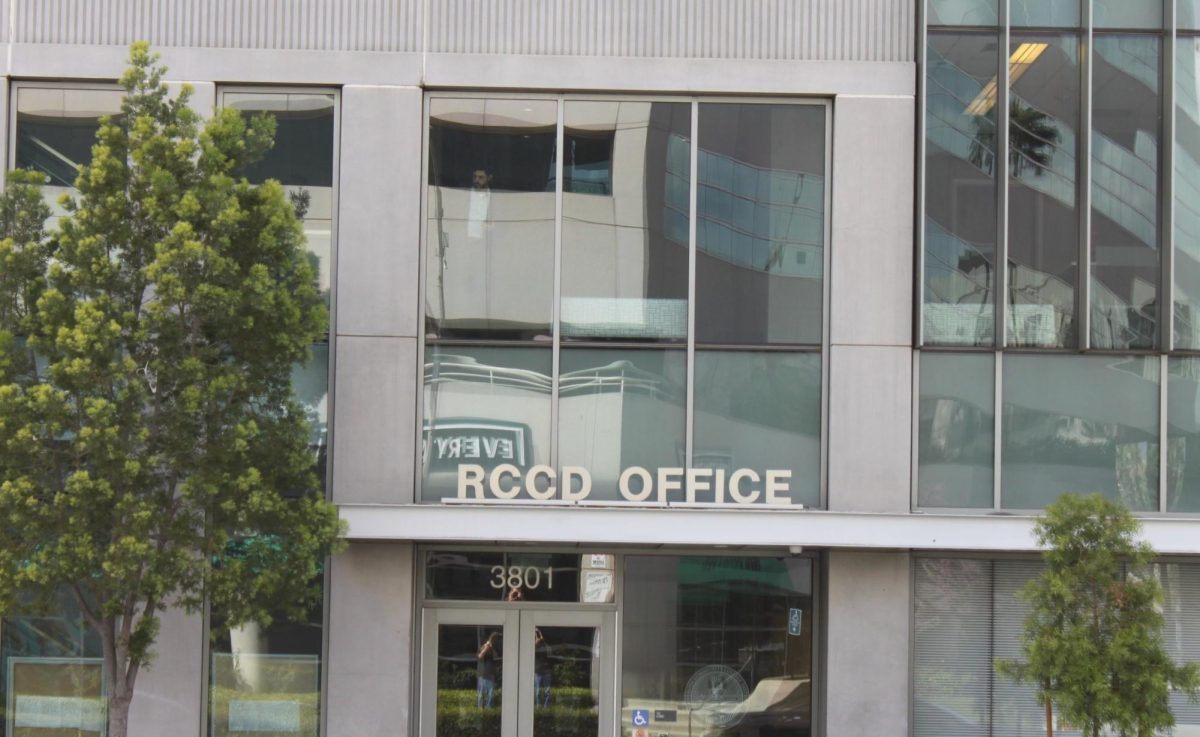By Caitlyn Nelson
Riverside City College hosted the roundtable discussion on the Psychology of Hate: The Rise of Antisemitism and Islamophobia on Dec. 5 inside the Digital Library Auditorium.
This roundtable discussion was co-hosted by the Active Minds Club, Moreno Valley College Psychology Club, Norco College Psychological and Philosophical Club and Norco College Psi Beta Club.
Panelists for this discussion consisted of Religious Studies professors of the University of California, Riverside, Michael Alexander and Muhamad Ali, Communication Studies professor of Cal State University of Fullerton, Robin Gurien and Behavior & Associates professor, Senny Ben-Zvi.
“After Oct. 7 we have increased in the rise of people fearing Muslims,” Ali said.
There has been an increase in Islamophobia around the United States and he further discusses what this means and how much it has increased within the last year.
“There were 774 reports of bias incidents reported by The Council on American-Islamic Relations from Oct. 7 to Oct. 24, a 182% jump from the average 16-day period in 2022,” Ali said. “Islamophobia to me is a form of a social phobia, it’s a fear or hatred. The object of this fear or hatred in this case is either Islam as a whole or certain practices like wearing the veils for example, or beards or turbans.”
To further the discussion Gurien brings up the increase in antisemitism across the world.
“Antisemitism exists because people who have no experience of Jews are relying on the labels they have heard in the past or the bias that they have heard,” Gurien said.
She acknowledges that individuals have changed the way that they express their antisemitism and have made it more about Israel, but that this is just a way in which they are expressing their discrimination against Jewish people.
“People are conflating the antisemitic trope of Jews being corrupt, Jews being evil and they are simply replacing it with Israel is corrupt, Israel is evil and Israel is greedy,” Gurien said. “From a Jewish perspective we don’t hear that as a legitimate criticism of Israel we hear that as antisemitism.”
Gurien expresses that the best way to mend together and find common ground is by trying to better understand each other.
“Making sure we all use the same terminology and where we don’t agree on definitions … just keep working to lower, lower and lower to a lower rung until you’ve gotten a value that both sides or that all people in the conversation can agree on,” Gurien said.
Following the events of Oct. 7 there has been an increase in discrimination against Jewish people and Muslims.
“After Oct. 7 there was almost a 400% increase in documented antisemitic events, Islamophobia has gone up as well and antisemitism even more so,” Ben-Zvi said.
Antisemitism has been going on before the events of this year, but in research, it is understood that this year is greatly detrimental to the safety of Jewish students and citizens of America.
“73% of Jewish college students have experienced or received antisemitism since the start of the school year,” said Ben-Zvi.
This discussion allowed students in the Inland Empire to have a better understanding of the discrimination amongst the Jews and Muslims. RCC student, Ariel Randolph, expresses how this discussion impacted her.
“I am glad that RCC is talking about it. Riverside did a peaceful protest two nights ago at the Mission Inn, so I want to be on the same topic and on the same page as people in the community,” Randolph said.
She further expressed how the speakers of this discussion greatly demonstrated that individuals should not judge others based on a lack of understanding.
“The main takeaway is to not let your hate and judgment of somebody you don’t understand cloud your choices and I think that they reached that perfectly,” Randolph said.
The overall understanding is that the way that individuals communicate with others can affect the type of community that we live in.
“The language we use can contribute to the kind of community we want to make,” Gurien said.

